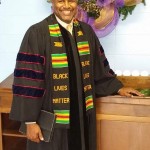 Below is the Call for Papers for the Critical Approaches to Hip Hop and Religion Group of the American Academy of Religion Conference in San Antonio, Texas November 16-19, 2016.
Below is the Call for Papers for the Critical Approaches to Hip Hop and Religion Group of the American Academy of Religion Conference in San Antonio, Texas November 16-19, 2016.
Statement of Purpose:
This Group’s purpose is to provide a space for interdisciplinary, sustained, scholarly reflection and intellectual advancements at the intersections of religion and hip-hop culture. We believe the Group will assist religious and theological studies to take more seriously hip-hop culture — while expanding the conversation of hip-hop culture beyond a thin analysis of rap music. To these ends, this Group is marked by an effort to offer critical reflection on the multiplicity of the cultural practices of hip-hop culture. We also see something of value in advancing the field of religious studies through attention to how hip-hop might inform these various disciplines and methods. Understood in this way, scholarly attention to hip-hop will not transform it into a passive object of the scholar’s gaze — rather, through our attention to hip-hop, it also speaks back to the work of the AAR, offering tools by which to advance theory and method in the field.
Main Session – T.H.U.G. Luv: After 400 Years of Death, What’s ‘Love’ Got to Do with It?
The Critical Approaches to Hip Hop and Religion Group solicits paper and panel proposals that critically interrogate the category of love, and its place in the academic study of religion and ethical intervention, alike. 2016 marks the twentieth anniversary of the death of prophet and poet Tupac Shakur, dead at 26 and representative of the paucity of life options (and early death) faced by African Americans. Shakur left a legacy framed in terms of T.H.U.G. L.I.F.E.—The Hate You Gave Little Infants F@*s Everybody. For Shakur, T.H.U.G. L.I.F.E. was an identity, a cosmology, a theology, an orientation, way of life, “new form of black power,” and an ideological manifest for those disenfranchised. What then, would a “T.H.U.G. Luv” look like when considering theologian James Cone’s claim that blacks “have had too much of white love” (1972). In light of the ongoing assault on black bodies in the U.S. and globally, and the caustic truth telling embodied by Shakur and hip hop more generally, what rhetorical, social, theological, or critical use does “love,” even “revolutionary love,” hold for T.H.U.G.s still trapped “in god’s prison” (Shakur, 1997). Told by white masses that love is the “answer” and chided by black leaders fearful of nihilism, hip hoppers tends to be skeptical of any talk of love—especially a utopian type love which seems to “forgive all” and forget oppression; but perhaps there is still something to be said of T.H.U.G. Luv.
Possible proposal topics include, but are not limited to:
• The legacy of Tupac Shakur as social critic, philosopher, and/or theologian
• Hip hop as postcolonial critique of love
• Interpersonal relationships within the confines of ongoing anti-black racism
• The social and rhetorical function of “love” as academic and/or ethical intervention
• Love in a time of (ongoing) black & brown death
• Nihilism as critical theoretical posture
• Hip hop and revolutionary praxis
• Love as transgression/border crossing and/or boundary maintenance
• A systematic doctrine of T.H.U.G. Luv
• Loving black bodies
Co-Sponsored Session: The Courage to Be . . . Alright
This papers session, co-sponsored by Critical Approaches to Hip Hop and Religion & the Tillich: Issues in Theology, Religion, and Culture Group is an open call for papers that will foster a cross-generational, cross-cultural conversation provoked by the unexpected coincidence of Paul Tillich and Kendrick Lamar as generational voices illumining the dogged determination to be in the face of the annihilating forces of modernity. In 1952, Paul Tillich published The Courage to Be, as a critique of western theology’s uncritical reliance on ontological argumentation as an “objective” discourse which occluded the existential moorings of faith, which was on his account the very thing which gives human life it’s contours. Sixty years after the release of Courage, and uncannily coinciding with the anniversary of Tillich’s death—October 22, 2012—hip hop artist Kendrick Lamar released Good Kid, M.A.A.D City, his first major studio album. GKMC, like 2015’s To Pimp a Butterfly, and earlier mixtapes and independent releases, demonstrates Kendrick Lamar’s deeply existential ruminations and a dogged determination to be, in face of contemporary and ongoing assault on black life and on black being the contemporary forces of modernity. Songs like “Alright” and “I” celebrate a courage to be and privilege self-affirmation in ways that are embodied, aural, and theologically-weighty, giving shape, form, and (much needed) color toThe Courage to Be.
Possible proposal topics include, but are not limited to:
• Life in the midst of urban annihilation
• Contemporary expressions of existential theologies
• Hip hop and millennial appraisals of The Courage to Be
• Embodied theologies and the Poetics of Hip-Hop
• Dogged determination to be as a site of theological beginnings
• Inter- and Intra-ecclesial and racial comparative theologies
• Social and rhetorical techniques of authorizing religious/theological authority
Chair
- Christopher Driscoll, [email protected]
- Daniel White Hodge, [email protected]
Steering Committee
- Andre E. Johnson, [email protected]
- Anthony B. Pinn, [email protected]
- Brett Esaki, [email protected]
- James W. Perkinson, [email protected]
- M. Brandon McCormack, [email protected]
- Monica R. Miller, [email protected]












